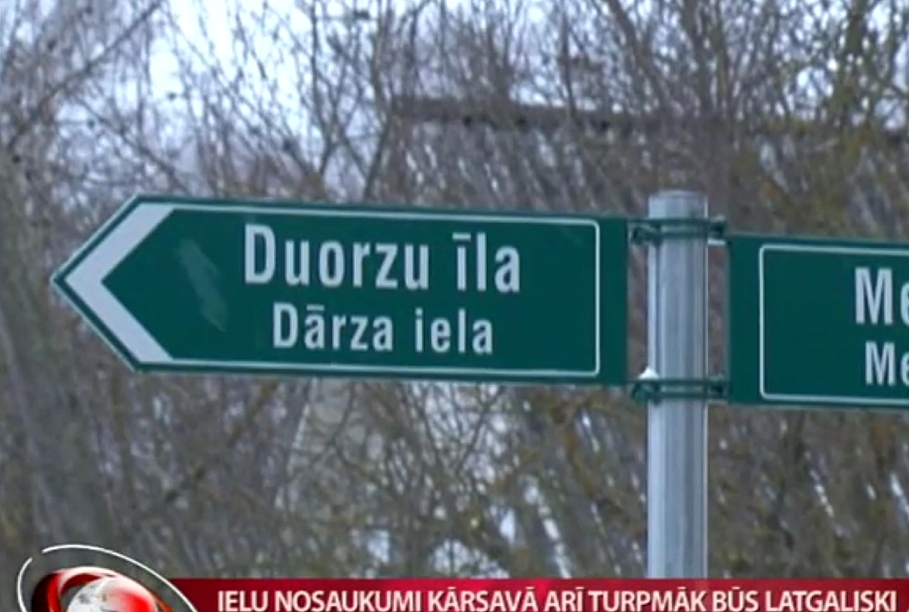Latgalian is a Latvian-language dialect spoken in eastern Latvia, with some 150,000-200,000 estimated to use the dialect.
The new street signs appeared two years ago as part of a youth initiative enabled by the Latgale Culture Program.
The initiative has not been well-received by State Language Center which since last fall is objecting to the bilingual signs that feature Latgalian prominently. The center is asking for the removal of the signs of which there are 105 in total and 195 more are upcoming this spring.
Inga Bernāne, a tourism worker in the Kārsava region, told Latvian Television that these signs are meant to showcase Latgalian not only to the locals but also guests of the region.
Executive director of the Kārsava municipality Toms Vorkalis said that the State Language Center is drawing parallels to a situation in which the notices were in Latvian and a foreign language, in which case Latvian should have been featured more prominently.
"We agree to that, of course. However can you draw parallels when only Latvian is used, or Latgalian and Latvian? We have doubts [about that], taking into account that the State Language Center tells in the beginning of a letter that Latgalian is Latvian. It's a sort of a contradiction," Vorkalis told Latvian Television.
As of now the parties are discussing the situation in a diplomatic manner, through letters and evaluating the situation. However the municipality might face fines over its language use.
Agris Timuška, deputy director of the State Language Center, told Latvian Television that individuals can be fined from €35 to €210 while legal persons can be fined from €70 to €700 for erring on the wrong side of language use.
"On the one hand you could say that there's never too much of all things Latgalian. However we must say that there is in this case," said Timuška.




























